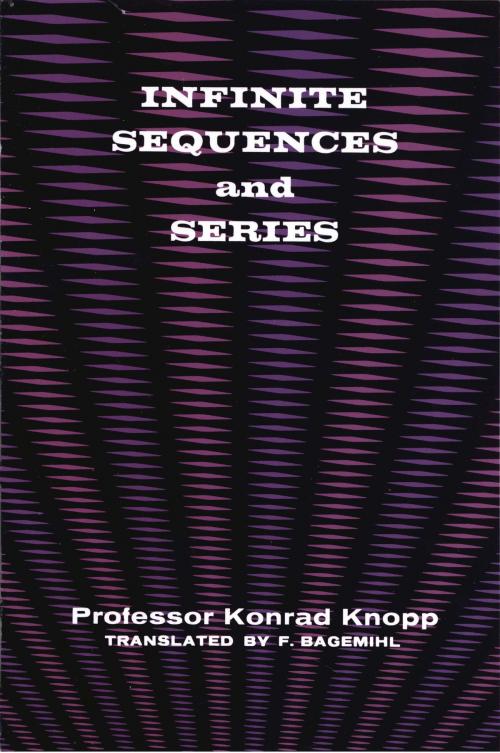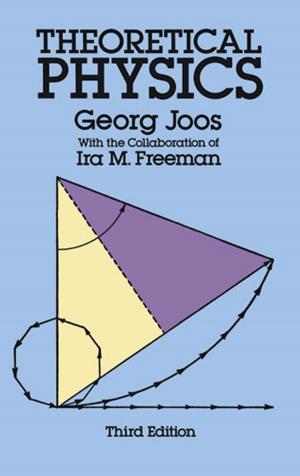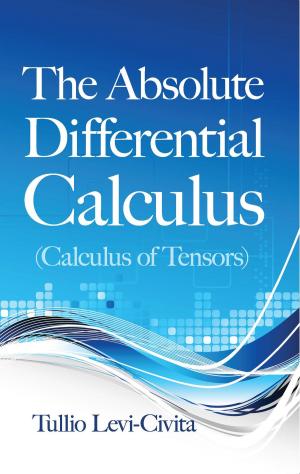| Author: | Konrad Knopp | ISBN: | 9780486152042 |
| Publisher: | Dover Publications | Publication: | September 14, 2012 |
| Imprint: | Dover Publications | Language: | English |
| Author: | Konrad Knopp |
| ISBN: | 9780486152042 |
| Publisher: | Dover Publications |
| Publication: | September 14, 2012 |
| Imprint: | Dover Publications |
| Language: | English |
One of the finest expositors in the field of modern mathematics, Dr. Konrad Knopp here concentrates on a topic that is of particular interest to 20th-century mathematicians and students. He develops the theory of infinite sequences and series from its beginnings to a point where the reader will be in a position to investigate more advanced stages on his own. The foundations of the theory are therefore presented with special care, while the developmental aspects are limited by the scope and purpose of the book.
All definitions are clearly stated; all theorems are proved with enough detail to make them readily comprehensible. The author begins with the construction of the system of real and complex numbers, covering such fundamental concepts as sets of numbers and functions of real and complex variables. In the treatment of sequences and series that follows, he covers arbitrary and null sequences; sequences and sets of numbers; convergence and divergence; Cauchy's limit theorem; main tests for sequences; and infinite series. Chapter three deals with main tests for infinite series and operating with convergent series. Chapters four and five explain power series and the development of the theory of convergence, while chapter six treats expansion of the elementary functions. The book concludes with a discussion of numerical and closed evaluation of series.
One of the finest expositors in the field of modern mathematics, Dr. Konrad Knopp here concentrates on a topic that is of particular interest to 20th-century mathematicians and students. He develops the theory of infinite sequences and series from its beginnings to a point where the reader will be in a position to investigate more advanced stages on his own. The foundations of the theory are therefore presented with special care, while the developmental aspects are limited by the scope and purpose of the book.
All definitions are clearly stated; all theorems are proved with enough detail to make them readily comprehensible. The author begins with the construction of the system of real and complex numbers, covering such fundamental concepts as sets of numbers and functions of real and complex variables. In the treatment of sequences and series that follows, he covers arbitrary and null sequences; sequences and sets of numbers; convergence and divergence; Cauchy's limit theorem; main tests for sequences; and infinite series. Chapter three deals with main tests for infinite series and operating with convergent series. Chapters four and five explain power series and the development of the theory of convergence, while chapter six treats expansion of the elementary functions. The book concludes with a discussion of numerical and closed evaluation of series.















